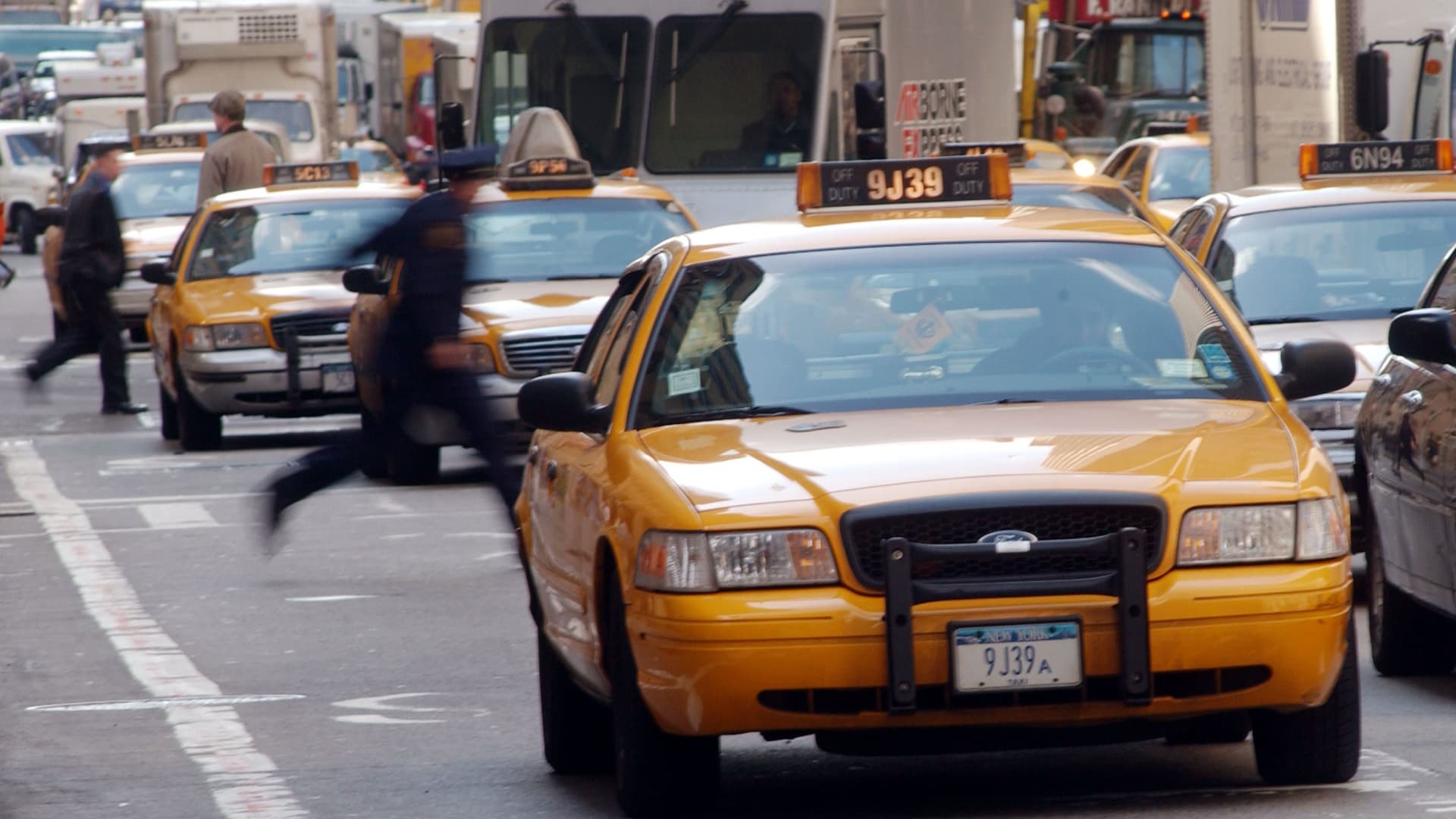New York City taxis fight for survival against Uber and Lyft

New York City’s yellow taxis have been a symbol of the metropolis for decades. But taxi drivers only make up about 10% of the total driver landscape in the city — giving way to Uber and Lyft.
While this is in large part due to consumer choice and the ease of ordering a ride-share car, it’s also a result of the tough work conditions taxi drivers have faced. They work an average of 9.5 hours a day, 6 days a week, according to the National Library of Medicine. In addition, to driving a taxi, drivers have to own or lease a medallion, which can cost a fortune.
Medallions reached a hefty price of over $1 million in the early 2010s after being artificially inflated by predatory lending, the lure of a rare asset, and industry leaders purposefully overpaying.
Prices subsequently tanked with the rise of Uber and Lyft which caused great anguish for drivers who owned their own medallion. The COVID pandemic made things even worse as taxi hailers became almost non-existent.
“With the government shutdowns of various cities due to the COVID pandemic, a lot of drivers moved to different areas of work,” said David Do, commissioner of the New York City Taxi and Limousine Commission.
Now, taxi drivers are fighting for space in the industry as they recover from the medallion crisis and COVID-19 pandemic.
So, will taxis survive the changing industry?